Ramnavami LIVE BROADCAST from Bhaktivedanta Manor on
www.mayapur.tv
| Tipo: |
Fecha:
miércoles, 24 de marzo de 2010
Hora: 7:45 - 8:45
Lugar: GLOBAL WEBCAST
Descripción
www.mayapur.tv (click on MANOR stream)
 ABOUT THE SPEAKER
ABOUT THE SPEAKER
His Grace Jananivas prabhu joined Srila Prabhupada in Mayapur from the beginning of the project (1972)and has been the personal servant of their Lordships Sri Sri Radha Madhava ever since. He enlivens the world by the ever increasingly high standard of the deity worship performed in Mayapur under his guidance. The world can now also benefit from his association via these classes. Prabhu never fails to bring the consciousness of the listener to a higher level, always deeper realizations. He knows the art of opening the heart to be ready to welcome devotional service. My obeisances onto him.
na — not; etādṛśānām — like this; sva-jana — kinsmen; vyapekṣayā — depending on that; gṛhān — in the house of; pratīyāt — one should go; anavasthita — disturbed; ātmanām — mind; ye — those; abhyāgatān — guests; vakra-dhiyā — with a cold reception; abhicakṣate — looking at; āropita-bhrūbhiḥ — with raised eyebrows; amarṣaṇa — angry; akṣibhiḥ — with the eyes.
VIDEO
Here's the schedule: (TIMES ARE GMT)
Morning
7:30 am Deity Greeting, followed by kirtan
8:15 am Drama performance by the Gurukula children
8:30 am Class by HG Kripamoya Prabhu
10:00 am Abhisek
Evening
6:00 pm Ramayana – Performed by the Bhaktivedanta players LIVE from the Theatre room
H.G. Jananivas Prabhu speaks on S.B. 4.3.18 - From a live broadcast on Mayapur TV
 ABOUT THE SPEAKER
ABOUT THE SPEAKERHis Grace Jananivas prabhu joined Srila Prabhupada in Mayapur from the beginning of the project (1972)and has been the personal servant of their Lordships Sri Sri Radha Madhava ever since. He enlivens the world by the ever increasingly high standard of the deity worship performed in Mayapur under his guidance. The world can now also benefit from his association via these classes. Prabhu never fails to bring the consciousness of the listener to a higher level, always deeper realizations. He knows the art of opening the heart to be ready to welcome devotional service. My obeisances onto him.
Śrīmad Bhāgavatam 4.3.18
naitādṛśānāḿ sva-jana-vyapekṣayā
gṛhān pratīyād anavasthitātmanām
ye 'bhyāgatān vakra-dhiyābhicakṣate
āropita-bhrūbhir amarṣaṇākṣibhiḥ
naitādṛśānāḿ sva-jana-vyapekṣayā
gṛhān pratīyād anavasthitātmanām
ye 'bhyāgatān vakra-dhiyābhicakṣate
āropita-bhrūbhir amarṣaṇākṣibhiḥ
SYNONYMS
na — not; etādṛśānām — like this; sva-jana — kinsmen; vyapekṣayā — depending on that; gṛhān — in the house of; pratīyāt — one should go; anavasthita — disturbed; ātmanām — mind; ye — those; abhyāgatān — guests; vakra-dhiyā — with a cold reception; abhicakṣate — looking at; āropita-bhrūbhiḥ — with raised eyebrows; amarṣaṇa — angry; akṣibhiḥ — with the eyes.
TRANSLATION
One should not go to anyone's house, even on the consideration of his being a relative or a friend, when the man is disturbed in his mind and looks upon the guest with raised eyebrows and angry eyes.PURPORT
However low a person may be, he is never unkind to his children, wife and nearest kin; even a tiger is kind to its cubs, for within the animal kingdom the cubs are treated very nicely. Since Sati was the daughter of Dakṣa, however cruel and contaminated he might be, naturally it was expected that he would receive her very nicely. But here it is indicated by the word anavasthita that such a person cannot be trusted. Tigers are very kind to their cubs, but it is also known that sometimes they eat them. Malicious persons should not be trusted, because they are always unsteady. Thus Satī was advised not to go to her father's house because to accept such a father as a relative and to go to his house without being properly invited was not suitable.VIDEO
H.G. Pankajanghri prabhu speaks on B.G. 11.41-42 - from a live broadcast on Mayapur.TV
ABOUT THE SPEAKER
His Grace Pankajanghri das Brahmacari Prabhu has been serving Sri Sri Radha Madhava from the early Iskcon Mayapur days. He resides in Mayapur. Pankajanghri prabhu is the devotees' link to Lord Nrsinghadev in Mayapur as he offers prayers to him on our behalf.
sakhā — friend; iti — thus; matvā — thinking; prasabham — presumptuously; yat — whatever; uktam — said; he kṛṣṇa — O Kṛṣṇa; he yādava — O Yādava; he sakhe — O my dear friend; iti — thus; ajānatā — without knowing; mahimānam — glories; tava — Your; idam — this; mayā — by me; pramādāt — out of foolishness; praṇayena — out of love; vā api — either; yat — whatever; ca — also; avahāsa-artham — for joking; asat-kṛtaḥ — dishonored; asi — You have been; vihāra — in relaxation; śayyā — in lying down; āsana — in sitting; bhojaneṣu — or while eating together; ekaḥ — alone; atha vā — or; api — also; acyuta — O infallible one; tat-samakṣam — among companions; tat — all those; kṣāmaye — ask forgiveness; tvām — from You; aham — I; aprameyam — immeasurable.
Thinking of You as my friend, I have rashly addressed You "O Kṛṣṇa," "O Yādava," "O my friend," not knowing Your glories. Please forgive whatever I may have done in madness or in love. I have dishonored You many times, jesting as we relaxed, lay on the same bed, or sat or ate together, sometimes alone and sometimes in front of many friends. O infallible one, please excuse me for all those offenses.
Although Kṛṣṇa is manifested before Arjuna in His universal form, Arjuna remembers his friendly relationship with Kṛṣṇa and is therefore asking pardon and requesting Kṛṣṇa to excuse him for the many informal gestures which arise out of friendship. He is admitting that formerly he did not know that Kṛṣṇa could assume such a universal form, although Kṛṣṇa explained it as his intimate friend. Arjuna did not know how many times he may have dishonored Kṛṣṇa by addressing Him "O my friend," "O Kṛṣṇa," "O Yādava," etc., without acknowledging His opulence. But Kṛṣṇa is so kind and merciful that in spite of such opulence He played with Arjuna as a friend. Such is the transcendental loving reciprocation between the devotee and the Lord. The relationship between the living entity and Kṛṣṇa is fixed eternally; it cannot be forgotten, as we can see from the behavior of Arjuna. Although Arjuna has seen the opulence in the universal form, he cannot forget his friendly relationship with Kṛṣṇa.
Click HERE for audio
His Grace Pankajanghri das Brahmacari Prabhu has been serving Sri Sri Radha Madhava from the early Iskcon Mayapur days. He resides in Mayapur. Pankajanghri prabhu is the devotees' link to Lord Nrsinghadev in Mayapur as he offers prayers to him on our behalf.
Bhagavad-gītā As It Is 11.41-42
sakheti matvā prasabhaḿ yad uktaḿ
he kṛṣṇa he yādava he sakheti
ajānatā mahimānaḿ tavedaḿ
mayā pramādāt praṇayena vāpi
yac cāvahāsārtham asat-kṛto 'si
vihāra-śayyāsana-bhojaneṣu
eko 'tha vāpy acyuta tat-samakṣaḿ
tat kṣāmaye tvām aham aprameyam
SYNONYMS
sakheti matvā prasabhaḿ yad uktaḿ
he kṛṣṇa he yādava he sakheti
ajānatā mahimānaḿ tavedaḿ
mayā pramādāt praṇayena vāpi
yac cāvahāsārtham asat-kṛto 'si
vihāra-śayyāsana-bhojaneṣu
eko 'tha vāpy acyuta tat-samakṣaḿ
tat kṣāmaye tvām aham aprameyam
SYNONYMS
sakhā — friend; iti — thus; matvā — thinking; prasabham — presumptuously; yat — whatever; uktam — said; he kṛṣṇa — O Kṛṣṇa; he yādava — O Yādava; he sakhe — O my dear friend; iti — thus; ajānatā — without knowing; mahimānam — glories; tava — Your; idam — this; mayā — by me; pramādāt — out of foolishness; praṇayena — out of love; vā api — either; yat — whatever; ca — also; avahāsa-artham — for joking; asat-kṛtaḥ — dishonored; asi — You have been; vihāra — in relaxation; śayyā — in lying down; āsana — in sitting; bhojaneṣu — or while eating together; ekaḥ — alone; atha vā — or; api — also; acyuta — O infallible one; tat-samakṣam — among companions; tat — all those; kṣāmaye — ask forgiveness; tvām — from You; aham — I; aprameyam — immeasurable.
TRANSLATION
Thinking of You as my friend, I have rashly addressed You "O Kṛṣṇa," "O Yādava," "O my friend," not knowing Your glories. Please forgive whatever I may have done in madness or in love. I have dishonored You many times, jesting as we relaxed, lay on the same bed, or sat or ate together, sometimes alone and sometimes in front of many friends. O infallible one, please excuse me for all those offenses.
PURPORT
Although Kṛṣṇa is manifested before Arjuna in His universal form, Arjuna remembers his friendly relationship with Kṛṣṇa and is therefore asking pardon and requesting Kṛṣṇa to excuse him for the many informal gestures which arise out of friendship. He is admitting that formerly he did not know that Kṛṣṇa could assume such a universal form, although Kṛṣṇa explained it as his intimate friend. Arjuna did not know how many times he may have dishonored Kṛṣṇa by addressing Him "O my friend," "O Kṛṣṇa," "O Yādava," etc., without acknowledging His opulence. But Kṛṣṇa is so kind and merciful that in spite of such opulence He played with Arjuna as a friend. Such is the transcendental loving reciprocation between the devotee and the Lord. The relationship between the living entity and Kṛṣṇa is fixed eternally; it cannot be forgotten, as we can see from the behavior of Arjuna. Although Arjuna has seen the opulence in the universal form, he cannot forget his friendly relationship with Kṛṣṇa.
VIDEO
AUDIO
Click HERE for audio
Tuesday, May 11, 2010
H.G. Bhakta Rupa Prabhu speaks on S.B. 4.3.16-17 - from a live broadcast on Maypur.TV
ABOUT THE SPEAKER
H.G. Bhakta Rupa prabhu is a senior disciple of H.D.G. A.C. Bhaktivedanta Swami Srila Prabhupada. He has been serving in India for most the last 20 years or more. He has responsibilities with ISKCON's Governing Body Commission, as well as the Indian committees. He also serves as a copy editor and administrator for Gopal Jiu Publications in Bhubanesvar.
H.G. Bhakta Rupa prabhu is a senior disciple of H.D.G. A.C. Bhaktivedanta Swami Srila Prabhupada. He has been serving in India for most the last 20 years or more. He has responsibilities with ISKCON's Governing Body Commission, as well as the Indian committees. He also serves as a copy editor and administrator for Gopal Jiu Publications in Bhubanesvar.
Śrīmad Bhāgavatam 4.3.16
śrī-bhagavān uvāca
tvayoditaḿ śobhanam eva śobhane
anāhutā apy abhiyanti bandhuṣu
te yady anutpādita-doṣa-dṛṣṭayo
balīyasānātmya-madena manyunā
śrī-bhagavān uvāca
tvayoditaḿ śobhanam eva śobhane
anāhutā apy abhiyanti bandhuṣu
te yady anutpādita-doṣa-dṛṣṭayo
balīyasānātmya-madena manyunā
SYNONYMS
śrī-bhagavān uvāca — the great lord replied; tvayā — by you; uditam — said; śobhanam — is true; eva — certainly; śobhane — my dear beautiful wife; anāhutāḥ — without being invited; api — even; abhiyanti — go; bandhuṣu — among friends; te — those (friends); yadi — if; anutpādita-doṣa-dṛṣṭayaḥ — not finding fault; balīyasā — more important; anātmya-madena — by pride caused by identification with the body; manyunā — by anger.TRANSLATION
The great lord replied: My dear beautiful wife, you have said that one may go to a friend's house without being invited, and this is true, provided such a friend does not find fault with the guest because of bodily identification and thereby become angry towards him.PURPORT
Lord Śiva could foresee that as soon as Sati reached her father's house, her father, Dakṣa, being too puffed up because of bodily identification, would be angry at her presence, and although she was innocent and faultless, he would be mercilessly angry towards her. Lord Śiva warned that since her father was too puffed up by his material possessions, he would be angry, and this would be intolerable for her. Therefore it was better that she not go. This fact was already experienced by Lord Śiva because although Lord Śiva was faultless, Dakṣa had cursed him in so many harsh words.Śrīmad Bhāgavatam 4.3.17
vidyā-tapo-vitta-vapur-vayaḥ-kulaiḥ
satāḿ guṇaiḥ ṣaḍbhir asattametaraiḥ
smṛtau hatāyāḿ bhṛta-māna-durdṛśaḥ
stabdhā na paśyanti hi dhāma bhūyasām
SYNONYMS
vidyā — education; tapaḥ — austerity; vitta — wealth; vapuḥ — beauty of body, etc.; vayaḥ — youth; kulaiḥ — with heritage; satām — of the pious; guṇaiḥ — by such qualities; ṣaḍbhiḥ — six; asattama-itaraiḥ — having the opposite result to those who are not great souls; smṛtau — good sense; hatāyām — being lost; bhṛta-māna-durdṛśaḥ — blind due to pride; stabdhāḥ — being proud; na — not; paśyanti — see; hi — for; dhāma — the glories; bhūyasām — of the great souls.vidyā-tapo-vitta-vapur-vayaḥ-kulaiḥ
satāḿ guṇaiḥ ṣaḍbhir asattametaraiḥ
smṛtau hatāyāḿ bhṛta-māna-durdṛśaḥ
stabdhā na paśyanti hi dhāma bhūyasām
SYNONYMS
TRANSLATION
Although the six qualities education, austerity, wealth, beauty, youth and heritage are for the highly elevated, one who is proud of possessing them becomes blind, and thus he loses his good sense and cannot appreciate the glories of great personalities.PURPORT
It may be argued that since Dakṣa was very learned, wealthy and austere and had descended from a very exalted heritage, how could he be unnecessarily angry towards another? The answer is that when the qualities of good education, good parentage, beauty and sufficient wealth are misplaced in a person who is puffed up by all these possessions, they produce a very bad result. Milk is a very nice food, but when milk is touched by an envious serpent it becomes poisonous. Similarly, material assets such as education, wealth, beauty and good parentage are undoubtedly nice, but when they decorate persons of a malicious nature, then they act adversely. Another example, given by Cāṇakya Paṇḍita, is that a serpent that has a jewel on its head is still fearful because it is a serpent. A serpent, by nature, is envious of other living entities, even though they be faultless. When a serpent bites another creature, it is not necessarily because the other creature is at fault; it is the habit of the serpent to bite innocent creatures. Similarly, although Dakṣa was qualified by many material assets, because he was proud of his possessions and because he was envious, all those qualities were polluted. It is sometimes, therefore, detrimental for a person advancing in spiritual consciousness, or Kṛṣṇa consciousness, to possess such material assets. Kuntīdevī, while offering prayers to Kṛṣṇa, addressed Him as akiñcana-gocara, one who is easily approached by those who are bereft of all material acquisitions. Material exhaustion is an advantage for advancement in Kṛṣṇa consciousness, although if one is conscious of his eternal relationship with the Supreme Personality of Godhead, one can utilize one's material assets, such as great learning and beauty and exalted ancestry, for the service of the Lord; then such assets become glorious. In other words, unless one is Kṛṣṇa conscious, all his material possessions are zero, but when this zero is by the side of the Supreme One, it at once increases in value to ten. Unless situated by the side of the Supreme One, zero is always zero; one may add one hundred zeros, but the value will still remain zero. Unless one's material assets are used in Kṛṣṇa consciousness, they may play havoc and degrade the possessor.Monday, May 10, 2010
H.G. Pankajanghri prabhu speaks on S.B. 4.3.13-15 - from a live broadcast on Mayapur.TV
ABOUT THE SPEAKER
His Grace Pankajanghri das Brahmacari Prabhu has been serving Sri Sri Radha Madhava from the early Iskcon Mayapur days. He resides in Mayapur. Pankajanghri prabhu is the devotees' link to Lord Nrsinghadev in Mayapur as he offers prayers to him on our behalf.
katham — how; sutāyāḥ — of a daughter; pitṛ-geha-kautukam — the festival in the house of her father; niśamya — hearing; dehaḥ — the body; sura-varya — O best of the demigods; na — not; ińgate — disturbed; anāhutāḥ — without being called; api — even; abhiyanti — goes; sauhṛdam — a friend; bhartuḥ — of the husband; guroḥ — of the spiritual master; deha-kṛtaḥ — of the father; ca — and; ketanam — the house.
O best of the demigods, how can the body of a daughter remain undisturbed when she hears that some festive event is taking place in her father's house? Even though you may be considering that I have not been invited, there is no harm if one goes to the house of one's friend, husband, spiritual master or father without invitation.
tat — therefore; me — unto me; prasīda — please be kind; idam — this; amartya — O immortal lord; vāñchitam — desire; kartum — to do; bhavān — Your Honor; kāruṇikaḥ — kind; bata — O lord; arhati — is able; tvayā — by you; ātmanaḥ — of your own body; ardhe — in the half; aham — I; adabhra-cakṣuṣā — having all knowledge; nirūpitā — am situated; mā — to me; anugṛhāṇa — please show kindness; yācitaḥ — requested.
ṛṣiḥ uvāca — the great sage Maitreya said; evam — thus; giritraḥ — Lord Śiva; priyayā — by his dear wife; abhibhāṣitaḥ — being spoken to; pratyabhyadhatta — replied; prahasan — while smiling; suhṛt-priyaḥ — dear to the relatives; saḿsmāritaḥ — remembering; marma-bhidaḥ — heart piercing; kuvāk-iṣūn — malicious words; yān — which (words); āha — said; kaḥ — who (Dakṣa); viśva-sṛjām — of the creators of the universal manifestation; samakṣataḥ — in the presence.
The great sage Maitreya said: Lord Śiva, the deliverer of the hill Kailāsa, having thus been addressed by his dear wife, replied smilingly, although at the same time he remembered the malicious, heart-piercing speeches delivered by Dakṣa before the guardians of the universal affairs.
When Lord Śiva heard from his wife about Dakṣa, the psychological effect was that he immediately remembered the strong words spoken against him in the assembly of the guardians of the universe, and, remembering those words, he was sorry at heart, although to please his wife he smiled. In Bhagavad-gītā it is said that a liberated person is always in mental equilibrium in both the distress and the happiness of this material world. Therefore the question may now be raised why a liberated personality like Lord Śiva was so unhappy because of the words of Dakṣa. The answer is given by Śrīla Viśvanātha Cakravartī Ṭhākura. Lord Śiva is ātmārāma, or situated in complete self-realization, but because he is the incarnation in charge of the material mode of ignorance, tamo-guṇa, he is sometimes affected by the pleasure and pain of the material world. The difference between the pleasure and pain of this material world and that of the spiritual world is that in the spiritual world the effect is qualitatively absolute. Therefore one may feel sorry in the absolute world, but the manifestation of so-called pain is always full of bliss. For instance, once Lord Kṛṣṇa, in His childhood, was chastised by His mother, Yaśodā, and Lord Kṛṣṇa cried. But although He shed tears from His eyes, this is not to be considered a reaction of the mode of ignorance, for the incident was full of transcendental pleasure. When Kṛṣṇa was playing in so many ways, sometimes it appeared that He caused distress to the gopīs, but actually such dealings were full of transcendental bliss. That is the difference between the material and spiritual worlds. The spiritual world, where everything is pure, is pervertedly reflected in this material world. Since everything in the spiritual world is absolute, in the spiritual varieties of apparent pleasure and pain there is no perception other than eternal bliss, whereas in the material world, because everything is contaminated by the modes of material nature, there are feelings of pleasure and pain. Therefore because Lord Śiva, although a fully self-realized person, was in charge of the material mode of ignorance, he felt sorrow.
His Grace Pankajanghri das Brahmacari Prabhu has been serving Sri Sri Radha Madhava from the early Iskcon Mayapur days. He resides in Mayapur. Pankajanghri prabhu is the devotees' link to Lord Nrsinghadev in Mayapur as he offers prayers to him on our behalf.
Śrīmad Bhāgavatam 4.3.13
kathaḿ sutāyāḥ pitṛ-geha-kautukaḿ
niśamya dehaḥ sura-varya neńgate
anāhutā apy abhiyanti sauhṛdaḿ
bhartur guror deha-kṛtaś ca ketanam
SYNONYMS
kathaḿ sutāyāḥ pitṛ-geha-kautukaḿ
niśamya dehaḥ sura-varya neńgate
anāhutā apy abhiyanti sauhṛdaḿ
bhartur guror deha-kṛtaś ca ketanam
SYNONYMS
katham — how; sutāyāḥ — of a daughter; pitṛ-geha-kautukam — the festival in the house of her father; niśamya — hearing; dehaḥ — the body; sura-varya — O best of the demigods; na — not; ińgate — disturbed; anāhutāḥ — without being called; api — even; abhiyanti — goes; sauhṛdam — a friend; bhartuḥ — of the husband; guroḥ — of the spiritual master; deha-kṛtaḥ — of the father; ca — and; ketanam — the house.
TRANSLATION
O best of the demigods, how can the body of a daughter remain undisturbed when she hears that some festive event is taking place in her father's house? Even though you may be considering that I have not been invited, there is no harm if one goes to the house of one's friend, husband, spiritual master or father without invitation.
Śrīmad Bhāgavatam 4.3.14
tan me prasīdedam amartya vāñchitaḿ
kartuḿ bhavān kāruṇiko batārhati
tvayātmano 'rdhe 'ham adabhra-cakṣuṣā
nirūpitā mānugṛhāṇa yācitaḥ
tan me prasīdedam amartya vāñchitaḿ
kartuḿ bhavān kāruṇiko batārhati
tvayātmano 'rdhe 'ham adabhra-cakṣuṣā
nirūpitā mānugṛhāṇa yācitaḥ
SYNONYMS
tat — therefore; me — unto me; prasīda — please be kind; idam — this; amartya — O immortal lord; vāñchitam — desire; kartum — to do; bhavān — Your Honor; kāruṇikaḥ — kind; bata — O lord; arhati — is able; tvayā — by you; ātmanaḥ — of your own body; ardhe — in the half; aham — I; adabhra-cakṣuṣā — having all knowledge; nirūpitā — am situated; mā — to me; anugṛhāṇa — please show kindness; yācitaḥ — requested.
TRANSLATION
O immortal Śiva, please be kind towards me and fulfill my desire. You have accepted me as half of your body; therefore please show kindness towards me and accept my request.Śrīmad Bhāgavatam 4.3.15
ṛṣir uvāca
evaḿ giritraḥ priyayābhibhāṣitaḥ
pratyabhyadhatta prahasan suhṛt-priyaḥ
saḿsmārito marma-bhidaḥ kuvāg-iṣūn
yān āha ko viśva-sṛjāḿ samakṣataḥ
ṛṣir uvāca
evaḿ giritraḥ priyayābhibhāṣitaḥ
pratyabhyadhatta prahasan suhṛt-priyaḥ
saḿsmārito marma-bhidaḥ kuvāg-iṣūn
yān āha ko viśva-sṛjāḿ samakṣataḥ
SYNONYMS
ṛṣiḥ uvāca — the great sage Maitreya said; evam — thus; giritraḥ — Lord Śiva; priyayā — by his dear wife; abhibhāṣitaḥ — being spoken to; pratyabhyadhatta — replied; prahasan — while smiling; suhṛt-priyaḥ — dear to the relatives; saḿsmāritaḥ — remembering; marma-bhidaḥ — heart piercing; kuvāk-iṣūn — malicious words; yān — which (words); āha — said; kaḥ — who (Dakṣa); viśva-sṛjām — of the creators of the universal manifestation; samakṣataḥ — in the presence.
TRANSLATION
The great sage Maitreya said: Lord Śiva, the deliverer of the hill Kailāsa, having thus been addressed by his dear wife, replied smilingly, although at the same time he remembered the malicious, heart-piercing speeches delivered by Dakṣa before the guardians of the universal affairs.
PURPORT
When Lord Śiva heard from his wife about Dakṣa, the psychological effect was that he immediately remembered the strong words spoken against him in the assembly of the guardians of the universe, and, remembering those words, he was sorry at heart, although to please his wife he smiled. In Bhagavad-gītā it is said that a liberated person is always in mental equilibrium in both the distress and the happiness of this material world. Therefore the question may now be raised why a liberated personality like Lord Śiva was so unhappy because of the words of Dakṣa. The answer is given by Śrīla Viśvanātha Cakravartī Ṭhākura. Lord Śiva is ātmārāma, or situated in complete self-realization, but because he is the incarnation in charge of the material mode of ignorance, tamo-guṇa, he is sometimes affected by the pleasure and pain of the material world. The difference between the pleasure and pain of this material world and that of the spiritual world is that in the spiritual world the effect is qualitatively absolute. Therefore one may feel sorry in the absolute world, but the manifestation of so-called pain is always full of bliss. For instance, once Lord Kṛṣṇa, in His childhood, was chastised by His mother, Yaśodā, and Lord Kṛṣṇa cried. But although He shed tears from His eyes, this is not to be considered a reaction of the mode of ignorance, for the incident was full of transcendental pleasure. When Kṛṣṇa was playing in so many ways, sometimes it appeared that He caused distress to the gopīs, but actually such dealings were full of transcendental bliss. That is the difference between the material and spiritual worlds. The spiritual world, where everything is pure, is pervertedly reflected in this material world. Since everything in the spiritual world is absolute, in the spiritual varieties of apparent pleasure and pain there is no perception other than eternal bliss, whereas in the material world, because everything is contaminated by the modes of material nature, there are feelings of pleasure and pain. Therefore because Lord Śiva, although a fully self-realized person, was in charge of the material mode of ignorance, he felt sorrow.
Archives for Shree Mayapur Dham Classes and Special Events
Here's the schedule: (TIMES ARE GMT)
Morning
7:30 am Deity Greeting, followed by kirtan
8:15 am Drama performance by the Gurukula children
8:30 am Class by HG Kripamoya Prabhu
10:00 am Abhisek
Evening
6:00 pm Ramayana – Performed by the Bhaktivedanta players LIVE from the Theatre room
Invitados confirmados
Este evento tiene 212 invitados confirmadosVer todos
Enlaces
Mostrando 1 enlace Ver todos

Mayapur Live Ramnavami LIVE BROADCAST from Bhaktivedanta Manor on www.mayapur.tv: click on the "MANOR" stream
Either scripts and active content are not permitted to run or Adobe Flash Player version 10.0.0 or greater is not installed.
Muro
Mostrando todas las 8 publicaciones en el muro
Para poder escribir un comentario antes tienes que marcar una de las opciones de asistencia.
 |
| |||
 |
| |||
 |
| |||
 |
| |||
 |
| |||
 |
| |||
 |
| |||
 |
| |||

Tu confirmación de asistencia
Otros invitados
Tal vez asistan (156)
No asistirán (235)
En espera de respuesta (1.151)
Tipo de evento
Éste es un evento abierto. Cualquier puede unirse e invitar a otros a unirse.
Administradores
- Mayapur.tv (creador)
Página PRINCIPAL
OBRAS y AUTORES CLÁSICOS
Agradecimientos
Cuadro General
Disculpen las Molestias
| Conceptos Hinduistas (1428)SC |
|---|
Category:Hindu (mythology) (3256)SC | Category:Hindu mythology (3270)SC | Categoría:Mitología hindú (3288)SC (indice) | Categoría:Mitología hindú (videos) (3289)SC | Conceptos Hinduista (A - G) SK y SC (videos) (3294)SC Aa-Anc · Aga - Ahy · Ai - Akshay · Akshe - Amshum · Ana - Ancie · Ang - Asvayu · Ata - Az · Baa-Baz · Be-Bhak · Bhal-Bu · C · Daa-Daz · De · Dha-Dry · Du-Dy · E · F · Gaa-Gayu · Ge-Gy · Ha-He · Hi-Hy · I · J · K · Ka - Kam · Kan - Khatu · Ki - Ko · Kr - Ku · L · M · N · O · P · R · S · Saa-San · Sap-Shy · Si-Sy · Ta - Te · U · V · Ve-Vy · Y · Z |
| Conceptos Hinduistas (2919)SK | (2592)SK |
|---|
Aa-Ag · Ah-Am · Ana-Anc · And-Anu · Ap-Ar · As-Ax · Ay-Az · Baa-Baq · Bar-Baz · Be-Bhak · Bhal-Bhy · Bo-Bu · Bra · Brh-Bry · Bu-Bz · Caa-Caq · Car-Cay · Ce-Cha · Che-Chi · Cho-Chu · Ci-Cn · Co-Cy · Daa-Dan · Dar-Day · De · Dha-Dny · Do-Dy · Ea-Eo · Ep-Ez · Faa-Fy · Gaa-Gaq · Gar-Gaz · Ge-Gn · Go · Gra-Gy · Haa-Haq · Har-Haz · He-Hindk · Hindu-Histo · Ho-Hy · Ia-Iq · Ir-Is · It-Iy · Jaa-Jaq · Jar-Jay · Je-Jn · Jo-Jy · Kaa-Kaq · Kar-Kaz · Ke-Kh · Ko · Kr · Ku - Kz · Laa-Laq · Lar-Lay · Le-Ln · Lo-Ly · Maa-Mag · Mah · Mai-Maj · Mak-Maq · Mar-Maz · Mb-Mn · Mo-Mz · Naa-Naq · Nar-Naz · Nb-Nn · No-Nz · Oa-Oz · Paa-Paq · Par-Paz · Pe-Ph · Po-Py · Raa-Raq · Rar-Raz · Re-Rn · Ro-Ry · Saa-Sam · San-Sar · Sas-Sg · Sha-Shy · Sia-Sil · Sim-Sn · So - Sq · Sr - St · Su-Sz · Taa-Taq · Tar-Tay · Te-Tn · To-Ty · Ua-Uq · Ur-Us · Vaa-Vaq · Var-Vaz · Ve · Vi-Vn · Vo-Vy · Waa-Wi · Wo-Wy · Yaa-Yav · Ye-Yiy · Yo-Yu · Zaa-Zy |
Sri Garga-Samhita | Oraciones Selectas al Señor Supremo | Devotees Vaishnavas | Dandavat pranams - All glories to Srila Prabhupada | Hari Katha | Santos Católicos | El Antiguo Egipto I | Archivo Cervantes | Sivananda Yoga | Neale Donald Walsch | SWAMIS








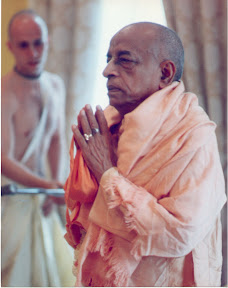






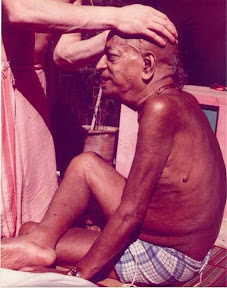



 BECOME A MTV SPONSOR
BECOME A MTV SPONSOR
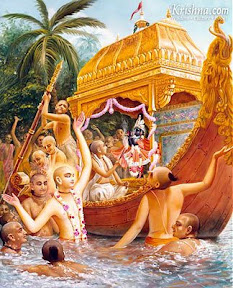






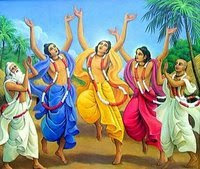






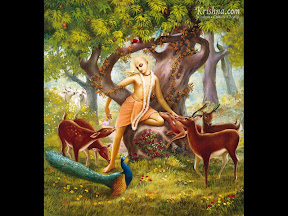





















No hay comentarios:
Publicar un comentario